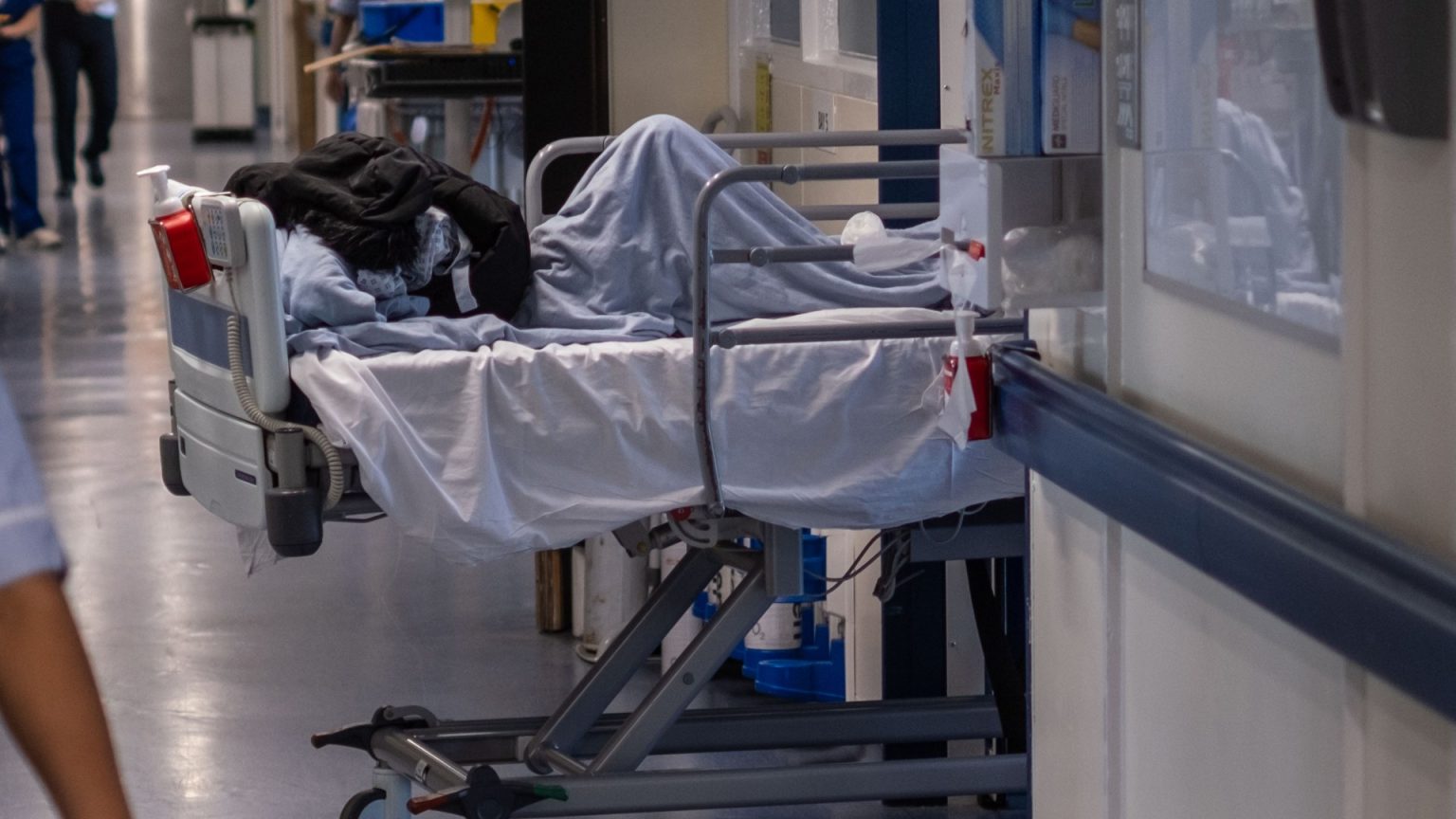The National Health Service (NHS) in England continues to face significant pressure even as the peak of flu season appears to have passed. While the number of patients hospitalized with influenza has decreased slightly, hospitals remain “jam-packed” with occupancy rates nearing 96%. This persistent strain on resources is attributed to a confluence of factors, including the continuing prevalence of winter viruses like norovirus and RSV, the recent cold snap, and a substantial backlog of patients who are medically fit for discharge but lack adequate social care arrangements at home. The situation paints a stark picture of an overwhelmed system struggling to cope with demand, despite efforts to increase bed capacity. The ongoing crisis underscores the interconnectedness of various healthcare challenges, where delayed discharges contribute to overcrowded emergency departments and corridors, ultimately impacting patient care and staff morale.
The severity of the situation is further highlighted by a concerning rise in norovirus cases, coupled with an increase in serious RSV infections among children. These additional pressures exacerbate the existing challenges posed by the aftermath of the flu season and the ongoing impact of COVID-19, which still occupies over a thousand hospital beds. The combination of these factors has led to what NHS officials describe as the busiest week of the winter so far, with nearly 98,000 inpatients occupying hospital beds across the country. The high occupancy rate not only strains resources but also creates a bottleneck in the system, hindering the timely admission of new patients and prolonging waiting times in already overburdened emergency departments.
A critical aspect contributing to the overcrowding is the significant number of patients – approximately 14% – who are medically ready to leave the hospital but cannot be discharged due to a lack of appropriate social care provisions. This “bed-blocking” phenomenon creates a logjam within the system, preventing new patients from accessing needed beds and further exacerbating the overcrowding in emergency departments and corridors. The inability to discharge these patients highlights a critical gap in the care continuum, where the lack of community-based support services creates a bottleneck within the hospital setting. This issue underscores the need for greater investment in social care services to facilitate timely discharges and alleviate pressure on hospitals.
The Royal College of Nursing (RCN) has released a damning report detailing the dire consequences of this ongoing crisis. The report, based on the testimonies of over 5,000 nursing staff, paints a harrowing picture of patients dying in corridors and waiting rooms due to delays in accessing treatment. The RCN warns that the scale of treatment provided outside of designated medical areas, including in cupboards and car parks, is unprecedented. These makeshift arrangements underscore the desperate measures taken by healthcare professionals to provide care amidst overwhelming demand and inadequate resources. The report serves as a stark reminder of the human cost of the ongoing crisis, highlighting the urgent need for systemic change.
The RCN report reveals numerous distressing accounts from frontline nurses, illustrating the devastating impact of the crisis on both patients and staff. Nurses describe heartbreaking scenarios of patients dying in corridors, waiting hours for basic care, and being denied access to essential medical equipment. These accounts highlight the erosion of patient dignity and the immense emotional toll on healthcare professionals who are forced to work under such challenging conditions. The stories shared by nurses underscore the urgent need for increased resources and systemic changes to address the root causes of the crisis and ensure patient safety and well-being.
The government acknowledges the severity of the situation, with Health Secretary Wes Streeting admitting that the experiences of patients this winter are unacceptable. While acknowledging the complexities of the challenges facing the NHS, he emphasizes the need for immediate action to improve the quality of care provided. The government’s recognition of the crisis is a crucial first step, but translating this acknowledgement into concrete action will be essential to address the systemic issues plaguing the healthcare system. The situation demands a comprehensive and sustained effort to bolster NHS resources, address staffing shortages, and strengthen social care services to ensure that patients receive the timely and dignified care they deserve.




